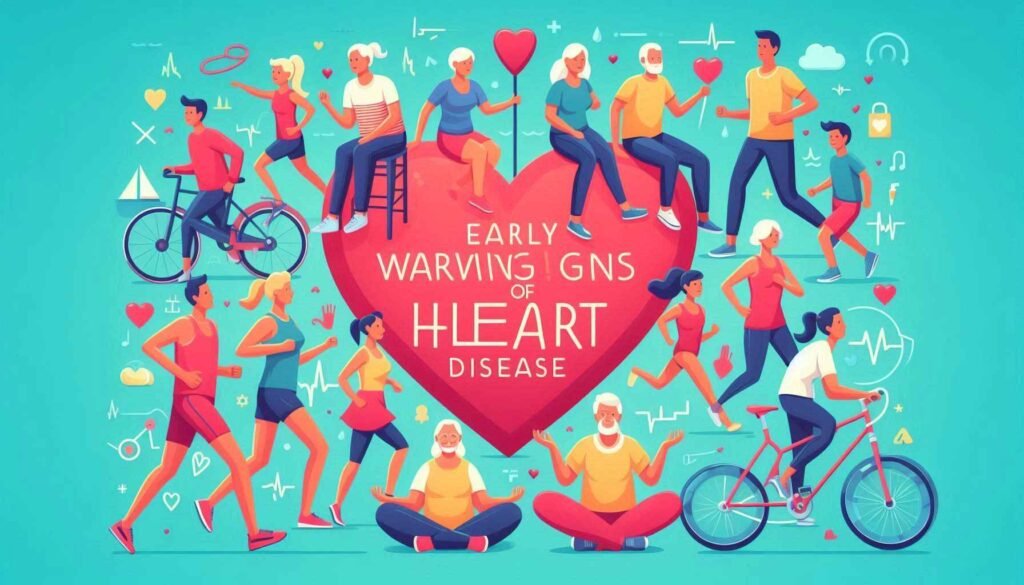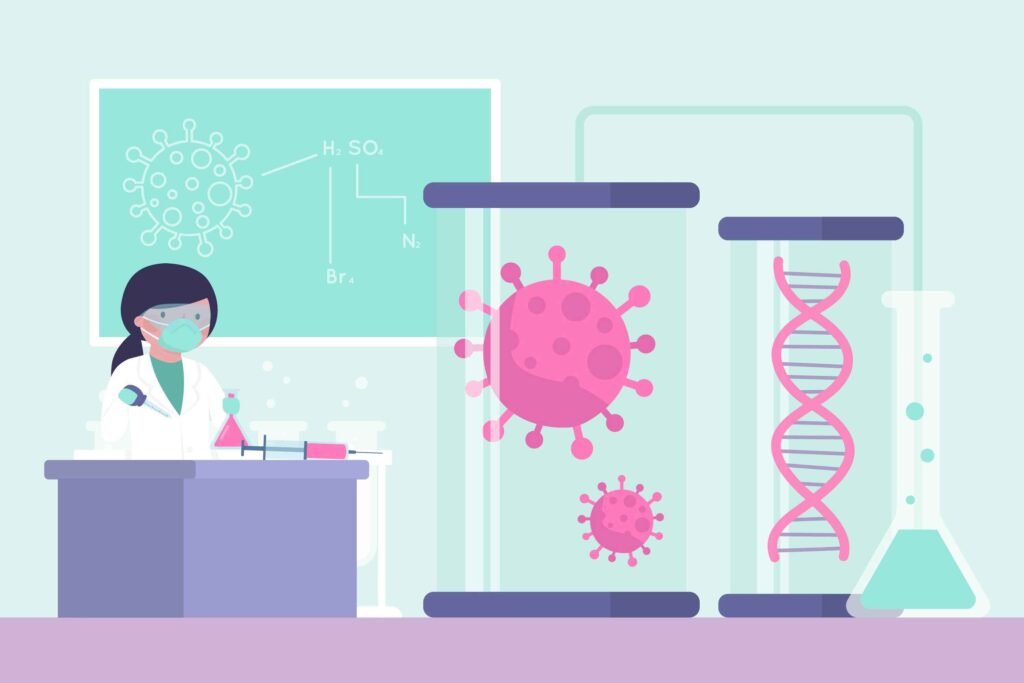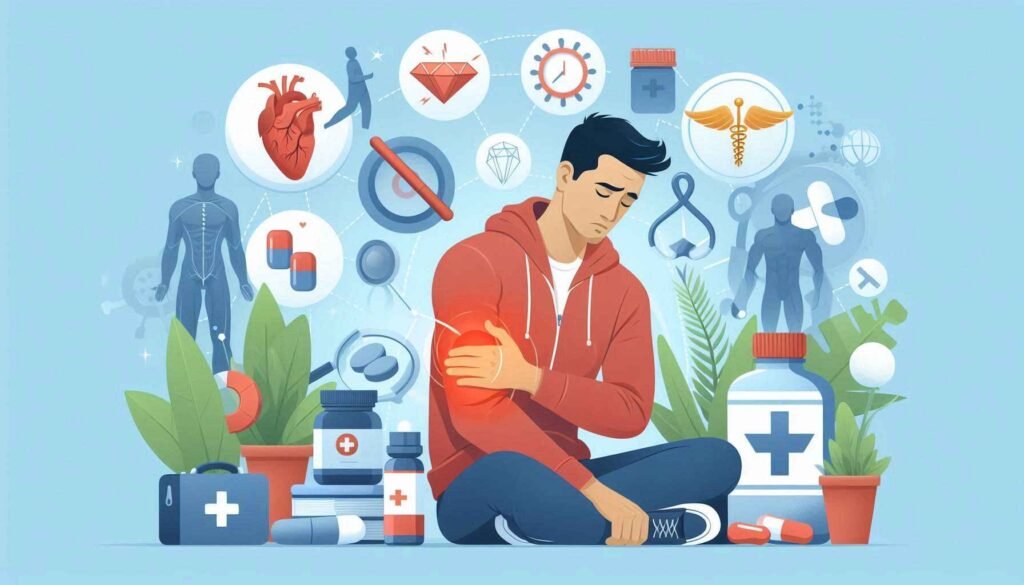
Heart disease remains the number one cause of death worldwide, but it doesn’t always strike without warning. In fact, the body often gives subtle hints that something isn’t right, way before a full-blown heart attack happens. Understanding these early signs of heart disease could make all the difference in getting the right care early, potentially saving your life or that of a loved one. Let’s dive into what these early warning signs look like and what you need to do if you recognize any of them.
The Silent Battle: Understanding Your Heart’s Warning Signals
The heart is our most diligent organ—it works tirelessly, pumping blood day and night. But when it starts to struggle, it often does so silently. Unlike a broken bone or a headache, heart issues may present symptoms that we might not immediately recognize as alarming. Being aware of these signs can empower you to take control of your heart health.
1. Chest Pain or Discomfort (Angina): The Classic Warning Sign
One of the most common early warning signs of heart disease is chest pain or discomfort, often known as angina. It’s described as a pressure, squeezing, fullness, or pain in the chest. Sometimes, it feels like someone is sitting on your chest.
Angina isn’t always the dramatic chest-clutching you see in movies—it can be mild, often mistaken for heartburn or general discomfort. The sensation may radiate to the arms, neck, jaw, or back, particularly on the left side. If you notice this type of pain, especially during physical exertion or emotional stress, it could be a sign that your heart isn’t getting enough oxygen-rich blood.
2. Shortness of Breath: When Simple Tasks Become Exhausting
Imagine walking up a flight of stairs, and suddenly you find yourself breathless—more than usual. Shortness of breath can indicate that the heart is having difficulty pumping blood efficiently, leading to fluid buildup in the lungs. If you experience breathlessness during daily activities or even while lying down, it might be more than just being out of shape.
3. Unexplained Fatigue and Weakness: When Tiredness Isn’t Just About Sleep
Feeling tired after a long day is normal, but constant fatigue could be a sign of heart trouble. If simple activities like grocery shopping or carrying a light load make you feel exhausted, it could indicate that your heart isn’t pumping efficiently. The lack of proper blood flow affects how much oxygen and nutrients your muscles and tissues receive, making you feel weak and sluggish. This type of fatigue can be particularly concerning when it appears out of nowhere or persists for an extended period.
4. Dizziness or Lightheadedness: More Than Just Standing Up Too Quickly
Feeling dizzy or lightheaded may be due to a sudden drop in blood pressure or an irregular heart rhythm. If you experience dizziness or almost faint when getting up quickly, it may be your body’s way of telling you that blood flow to your brain is not sufficient. This could be due to arrhythmias—irregular heartbeats—which might require medical attention.
5. Nausea, Indigestion, or Heartburn: Symptoms That Mimic Digestion Issues
You might not expect digestive issues to be a warning sign of heart disease, but nausea, indigestion, or even heartburn can all indicate heart problems. These symptoms are especially common in women. They can easily be mistaken for gastrointestinal issues, but when they occur alongside other heart-related symptoms, it’s essential to consider a cardiac origin.
6. Pain in the Arm, Jaw, Neck, or Back: The Radiating Effect
Heart pain isn’t always located in the chest. Sometimes, it can manifest in other parts of the body, such as the arms (often the left one), neck, jaw, or back. The pain might start in the chest and move outward, or it may simply appear in these areas without any chest discomfort. This kind of pain is known as referred pain and happens because of how the heart and the rest of the body share nerve pathways.
7. Swelling in the Legs, Ankles, or Feet: A Sign of Fluid Retention
When your heart can’t pump effectively, blood can back up in your veins, leading to fluid retention in the lower extremities. This can cause visible swelling in your legs, ankles, or feet—an issue known as edema. If you notice consistent swelling in these areas, especially when coupled with other symptoms like shortness of breath or fatigue, it could indicate that your heart isn’t functioning optimally.
8. Irregular Heartbeat (Palpitations): A Flutter in Your Chest
Everyone’s heart may skip a beat now and then, but frequent irregular heartbeats (arrhythmias) are a red flag. You might feel a fluttering, pounding, or racing sensation. While it could be related to anxiety or caffeine consumption, consistent or severe palpitations warrant medical evaluation, as they can indicate an underlying heart condition.
Heart Disease Warning Signs: A Gender Perspective
Heart disease doesn’t always look the same in men and women. While men are more likely to experience the classic crushing chest pain, women are more prone to subtle symptoms like nausea, fatigue, and shortness of breath. Understanding these differences is crucial. Women often delay seeking help because their symptoms are less pronounced, which can lead to more severe outcomes.
Taking Action: What to Do If You Notice Symptoms
When to Call Emergency Services
If you experience symptoms like chest pain, shortness of breath, or fainting, it’s crucial to seek immediate medical help. Time is heart muscle. Quick intervention can prevent extensive heart damage and improve survival chances. Even if the symptoms seem mild or go away, they could still indicate a significant problem.
Making Lifestyle Changes to Protect Your Heart
One of the best ways to combat heart disease is by making positive lifestyle changes:
- Quit Smoking: Smoking is a major risk factor for heart disease. Quitting can drastically reduce your risk.
- Exercise Regularly: Aim for at least 150 minutes of moderate exercise each week. Activities like walking, swimming, or cycling can strengthen your heart.
- Eat a Balanced Diet: Focus on a diet rich in fruits, vegetables, whole grains, and lean proteins. Cut down on processed foods, sugars, and trans fats.
- Manage Stress: Chronic stress contributes to heart disease. Techniques like meditation, deep breathing, and yoga can help keep stress levels in check.
- Monitor Blood Pressure and Cholesterol: High blood pressure and cholesterol are major contributors to heart disease. Regular monitoring and medication (if needed) can help keep them in check.
Preventive Health Check-Ups: Your First Line of Defense
Prevention is always better than cure. Regular check-ups with your healthcare provider can help detect heart disease before it becomes severe. Tests like blood pressure measurement, cholesterol tests, and even stress tests can help identify risks early, allowing for proactive management.
Conclusion: Listen to Your Heart, Literally
Your heart talks to you, but it doesn’t use words—it uses symptoms. Learning to recognize these early warning signs of heart disease is crucial for timely intervention. The earlier you catch these symptoms, the better your chances of preventing serious complications. If something feels off, don’t hesitate to reach out to a healthcare professional. Remember, when it comes to heart health, it’s always better to be safe than sorry.
Take care of your heart—it’s the only one you have, and it works tirelessly to take care of you. Listen to it, act on its warnings, and give it the love it deserves. Your future self will thank you.



